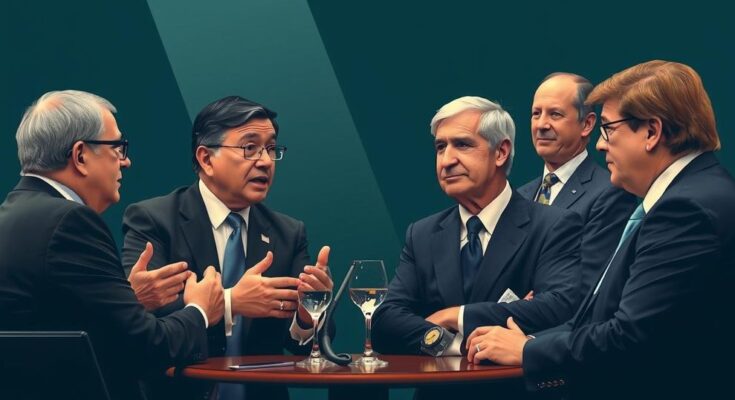The article discusses the differing positions on climate action between Donald Trump and right-wing leaders in Europe, highlighting their contrasting approaches during the COP29 U.N. Climate Summit. Trump advocates fossil fuels and rejects climate change science, while leaders like Hungary’s Viktor Orbán and Italy’s Giorgia Meloni promote climate initiatives, recognizing both environmental urgency and economic opportunity.
In recent discussions at the COP29 U.N. Climate Summit held in Baku, Azerbaijan, divergent approaches to climate action were starkly visible between certain right-wing governments and former U.S. President Donald Trump. While Trump has vocalized his denial of climate science and advocated for expanding fossil fuel production, leaders like Hungary’s Viktor Orbán and Italy’s Giorgia Meloni have embraced climate initiatives, recognizing the need for serious climate action. Orbán emphasized the potential of Europe to lead on climate matters while balancing economic interests. Unlike the U.S., where fossil fuel influence looms large, many European right-wing parties perceive climate action as aligned with national interests, economic opportunities, and public priorities. Moreover, these leaders understand the global urgency of climate change, reflected in their commitments to net-zero emissions, contrasting sharply with Trump’s retreat from international agreements.
The article explores the contrasting positions of right-wing political figures, particularly focusing on Donald Trump’s opposition to climate initiatives against the backdrop of certain right-wing European leaders who actively support climate action. It highlights how these leaders, engaged in the COP29 Climate Summit, recognize climate threats as opportunities for economic growth, while Trump’s administration has repeatedly rejected the science behind climate change and pulled the U.S. out of significant international agreements. This divergence raises questions about the influence of fossil fuel industries and the philosophical underpinnings that drive climate policy in the Americas versus Europe.
In summary, the conflicting stances on climate action between Donald Trump and several right-wing European governments underscore a significant ideological rift, with many European leaders advocating for robust climate policies as critical for both economic progress and environmental stewardship. Conversely, Trump’s rhetoric and policies indicate a dismissal of climate science rooted in an economic stance favoring fossil fuels. This divergence suggests a complex interplay of politics, climate urgency, and economic interests that will shape future environmental policies globally.
Original Source: apnews.com




